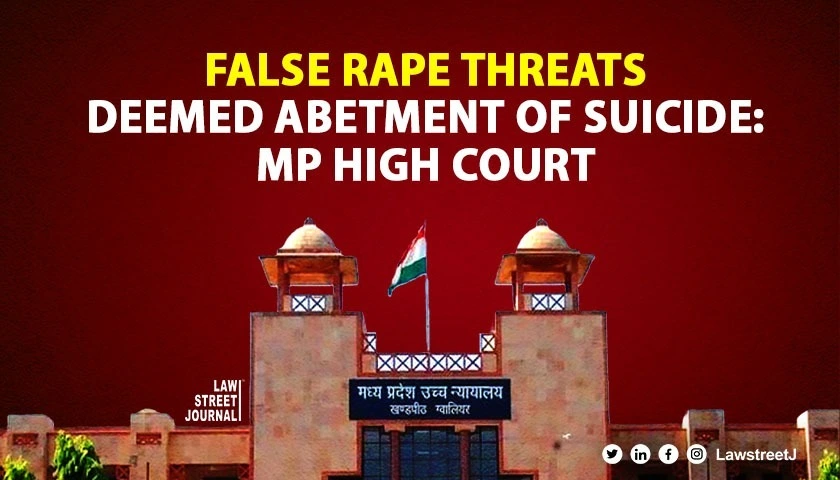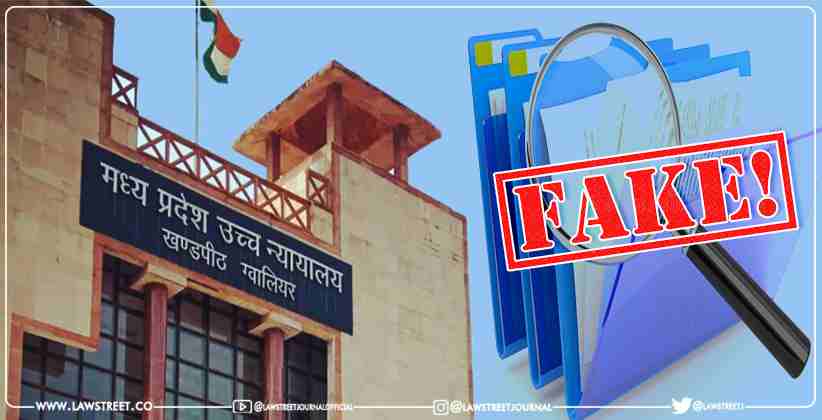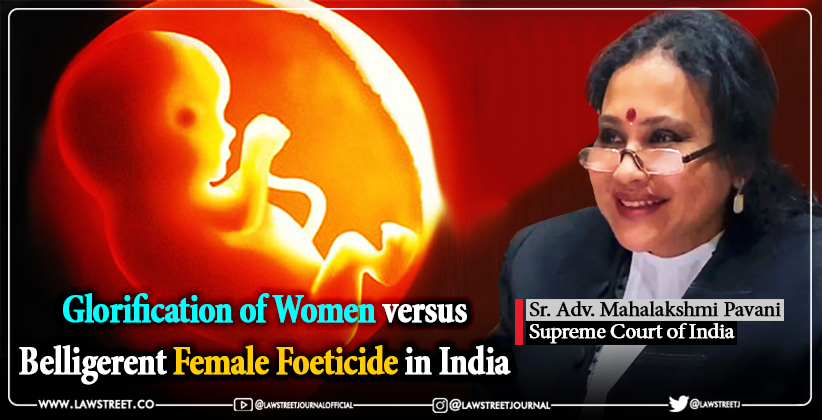Madhya Pradesh: The Madhya Pradesh High Court has recently dismissed a petition seeking the quashing of criminal proceedings initiated under Section 306 (abetment of suicide) of the Indian Penal Code (IPC). The court held that a constant threat by the accused to falsely implicate the deceased/victim in a case of rape and eve-teasing amounts to abetment of suicide.
A single-judge bench of Justice Gurpal Singh Ahluwalia found that sufficient material existed for the prosecution of the applicants for the alleged offence under Section 306 IPC.
A constant threat to falsely implicate the deceased in a case of rape and eve-teasing and to send him to jail would not be a mere empty threat but would demean and destroy his self-esteem as well as his career by branding him as a criminal of committing a heinous crime of rape. By ensuring that the deceased is lodged in jail on the basis of false allegations, if the deceased was afraid and apprehensive of the destruction of his self-esteem and respect in society, then on account of daily humiliation at the hands of the accused persons, if the deceased committed suicide, then prima facie an offence under Section 306 of IPC would be made out, the court said.
The court was hearing a petition under Section 482 of the Criminal Procedure Code filed by the applicants for quashing the criminal case registered against them at Police Station Bamhani, District Mandla, based on a suicide note left behind by the deceased.
FACTS:
The facts of the case are that information was received that the deceased had committed suicide by hanging himself. A suicide note written by the deceased was recovered, alleging that the applicants and others had lodged multiple false cases against him and his mother, spoiling his career. The deceased further alleged that applicant No. 1, Dr. Shivani Nishad, had threatened to falsely implicate him in a case of rape and eve-teasing and send him to jail.
The statements of witnesses, including the deceased's mother, corroborated the allegations made in the suicide note, wherein she stated that the applicants and others used to taunt her son daily, alleging that he was a shameless person for not dying despite the registration of cases against him.
ARGUMENTS:
The counsel for the applicants relied on judgments of the Supreme Court, arguing that the ingredients of Section 107 (abetment) of the IPC were not made out, and the deceased was hypersensitive to ordinary petulance and discord in domestic life.
The counsel for the State submitted that the continuous threats and taunts by the applicants had created a situation where the deceased was left with no option but to end his life. It was further argued that the deceased was under continuous threat of being falsely implicated in a case of rape and eve-teasing, and when the threatening was to the extent of demeaning and destroying his self-esteem, it would amount to abetment of suicide. Reliance was also placed on the Supreme Court's judgment in UDE Singh and Others vs. State of Haryana.
DECISION:
The court, after considering the law governing the offence of abetment of suicide, and hearing both parties, observed that the continuous threat to falsely implicate the deceased in a case of rape and eve-teasing would not be a mere empty threat but would demean and destroy his self-esteem and career.
The court noted that as per the law explained in Chitresh Kumar Chopra v. State, Ramesh Kumar v. State of Chhattisgarh, and Amalendu Pal v. State of West Bengal, instigation need not be direct but can be inferred from the circumstances created by the accused which left the deceased with no option but to commit suicide.
The court also held that if the deceased committed suicide due to daily humiliation and the apprehension of being branded as a criminal and being jailed based on false allegations, a prima facie case under Section 306 IPC would be made out against the applicants.
In conclusion, the court found sufficient material for the prosecution of the applicants for the alleged offence and dismissed the petition.





![High Court Prohibits Compulsion of Hijab and Islamic Texts on Students of Different Faiths at Ganga Jamuna School [Watch Video]](/secure/uploads/2023/09/lj_5754_f71da9b5-c632-4d0b-94b8-6f36245eb157.jpg)
.jpeg)




